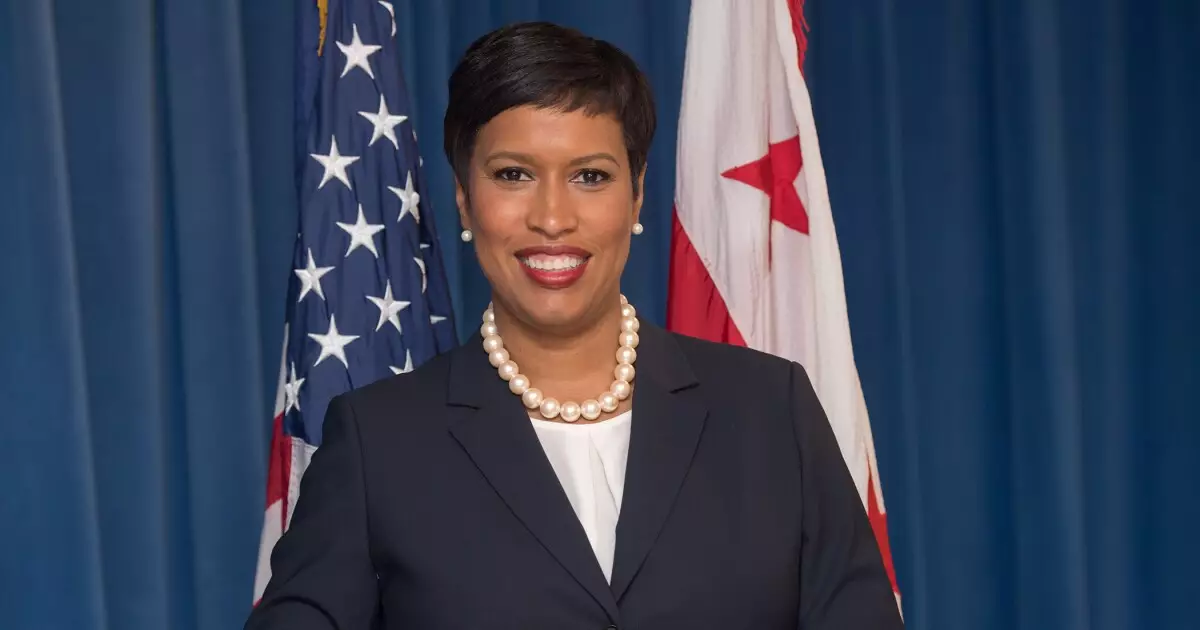The Evolving Dynamics of Washington D.C.: A New Era of Collaboration?

As we navigate the intricacies of political landscapes, the recent meeting between President-elect Donald Trump and Washington, D.C. Mayor Muriel Bowser signifies a pivotal moment in the city’s governance. Their discussions emerge against a backdrop of political contention and infrastructural challenges, proposing a renewed effort for collaboration between local and federal governments. This article explores the potential implications of their new partnership, the significance of recent congressional actions, and the lingering tensions that could shape this fragile relationship.
Contextualizing the Meeting: Municipal-Federal Relations
The meeting between President-elect Trump and Mayor Bowser can be viewed as a strategic effort to bridge divides within Washington D.C.’s unique political architecture. Historically, D.C. has contended with a complex relationship with Congress, especially concerning its oversight of the city’s budget and governance. This meeting, described by Bowser as constructive, highlighted several key areas for collaboration including federal workforce management, the utilization of underused federal properties, and the enhancement of city infrastructure.
Importantly, this exchange coincides with a recent congressional decision to transfer control of the RFK stadium site to the city. Such developments not only provide the city with critical resources but also present an opportunity to foster teamwork between a Republican-controlled Congress and a predominantly Democratic local administration. As both sides explore ways to address shared concerns, the potential for a more cooperative approach may unfold.
With Trump’s upcoming second inauguration, Washington D.C. is bracing for a significant financial undertaking. Mayor Bowser has secured a $90 million budget to alleviate the additional expenses associated with the transition period. This financial support was part of a broader continuing resolution aimed at maintaining government operations through mid-March, after which uncertainties regarding budget negotiations loom large.
The successful execution of the inauguration is not solely about pomp and pageantry; it presents the city with an opportunity to showcase its commitment to facilitating federal activities while managing local aspirations. Bowser’s optimism regarding this collaboration suggests an alignment of interests that could serve as a precedent for future interactions between state and federal authorities.
Long-term Investments and Urban Development
The RFK stadium site, sitting idle for years, represents both a historical monument and a dynamic future prospect for Washington D.C. The city plans to revitalise this area as a mixed-use development that incorporates residential, entertainment, and retail hubs. This strategy aims not just to enhance urban life but also to attract major sports franchises back to D.C., including the NFL’s Commanders.
Such urban development aligns with the city’s financial strategies, notably the planned $515 million bond issuance aimed at renovating the Capital One Arena. Initiatives like these are critical for driving economic growth and improving the city’s reputation as a sports destination. However, these ambitions are tempered by ongoing financial concerns—especially the worry that debt ceiling disputes and government shutdowns could impede planned investments.
The relationship between Mayor Bowser and President Trump has not always been harmonious, marred by past disagreements over issues such as military parades and the management of social protests. Trump’s characterizations of Washington D.C. as a “dangerous” city during his campaign further exacerbated such tensions. Moving forward, both parties face the challenge of overcoming their past disagreements as they strive for common causes.
As the political climate shifts, it is essential to recognize that the reconciliation of these two figures could lead to more fruitful outcomes for the residents of D.C. Their ability to work together has direct implications for urban policy, public safety, and the overall perception of governance in the capital. The importance of prioritizing collaboration over contention cannot be overstated.
As Washington D.C. steps into this new chapter with President Trump’s second term, the potential for collaboration with Mayor Bowser offers a glimmer of hope amidst a historically fraught relationship. The challenges are significant, but the recent discussions reflect a willingness to seek common ground on crucial issues that affect the local population.
Whether this newfound camaraderie translates into tangible improvements for the city remains to be seen. As stakeholders monitor the evolving dynamics, the vision for a more unified approach could pave the way for groundbreaking decisions that enhance both governance and community life in Washington D.C. In this context, maintaining open lines of communication and commitment to shared objectives will be critical in shaping a future that benefits all.





